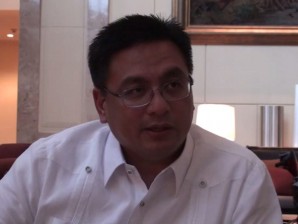Unlike other customs administrations in Asia, which have improved by leaps and bounds, the Bureau of Customs (BOC) in the country is in a “state of stagnation,” Customs Commissioner Ruffy Biazon has admitted, citing political intrigue, constant infighting, loopholes in customs laws and the public perception of corruption among the bureau’s perennial problems.
In an interview with a weekly magazine, copies of which were distributed at the BOC on Monday, Biazon lamented that smuggling remained “a major problem,” and that while some customs commissioners “were able to make a big impact … most were preoccupied with (putting out) small fires.”
Political intrigue
The customs chief cited “political intrigue associated with this office” among its recurrent problems, adding that “the infighting is so bad that (some) customs chiefs … had to spend more time protecting their backs instead of (doing their) primary tasks. Then there are the external factors, the various interests that come in.”
According to Biazon, “the main thrust of the bureau should be to close all the loopholes that allow smuggling to happen.”
He cited the Customs Clearance System that has an Entry Processing Unit under it.
“Its job is to receive the papers of importers, check their validity for compliance with customs regulations, and determine which section the importers should go (to), because all commodities are divided into specific sections,” he explained.
But there’s a loophole called “patalon” in the system, Biazon said.
“For example, when an importer brings in a commodity declared as food, instead of going to the proper section for evaluation, he goes to another section where he already has a favored examiner. There’s connivance … because of human intervention,” he said.
Technology should have eliminated the opportunity for connivance between the importer and the examiner, but some people have blocked this approach, Biazon said.
“Unfortunately, when I issued an order to automate the process, (some) people applied for a temporary restraining order (and) told the court that (under) the automated process, they would lose their jobs. The court granted the TRO, which has matured into a preliminary injunction. So we were not able to implement the change.”
Single window system
But Biazon said he was not giving up.
“Though that specific effort was blocked, others are ongoing, such as the National Single Window System … which links all government agencies involved in import or export … The transfer of data between the BOC and other agencies is electronic. Human intervention is avoided. More importantly, this system would prevent the use of forged and recycled documents … Once completed, it would allow us to link up with the Association of Southeast Asian Nations Single Window. Under this system, one country’s export documents would (become) another country’s import documents.”
In an earlier interview with the Philippine Daily Inquirer, Biazon said the BOC had intensified its “Run After the Smugglers,” or RATS campaign.
He also disputed columnist Rigoberto Tiglao’s claim that “smuggling in the country is at its worst under the Aquino administration.”
While smuggling remains “one of the biggest problems facing the BOC … it’s not true that we’re not addressing the problem,” he said, adding that most of the blame lay with “about 50 percent of customs operations still being done manually, as well as (on) some antiquated customs laws.”
He said the agency was also “handicapped by negative perceptions and prejudgment” that it was one of the most corrupt agencies of the government.
